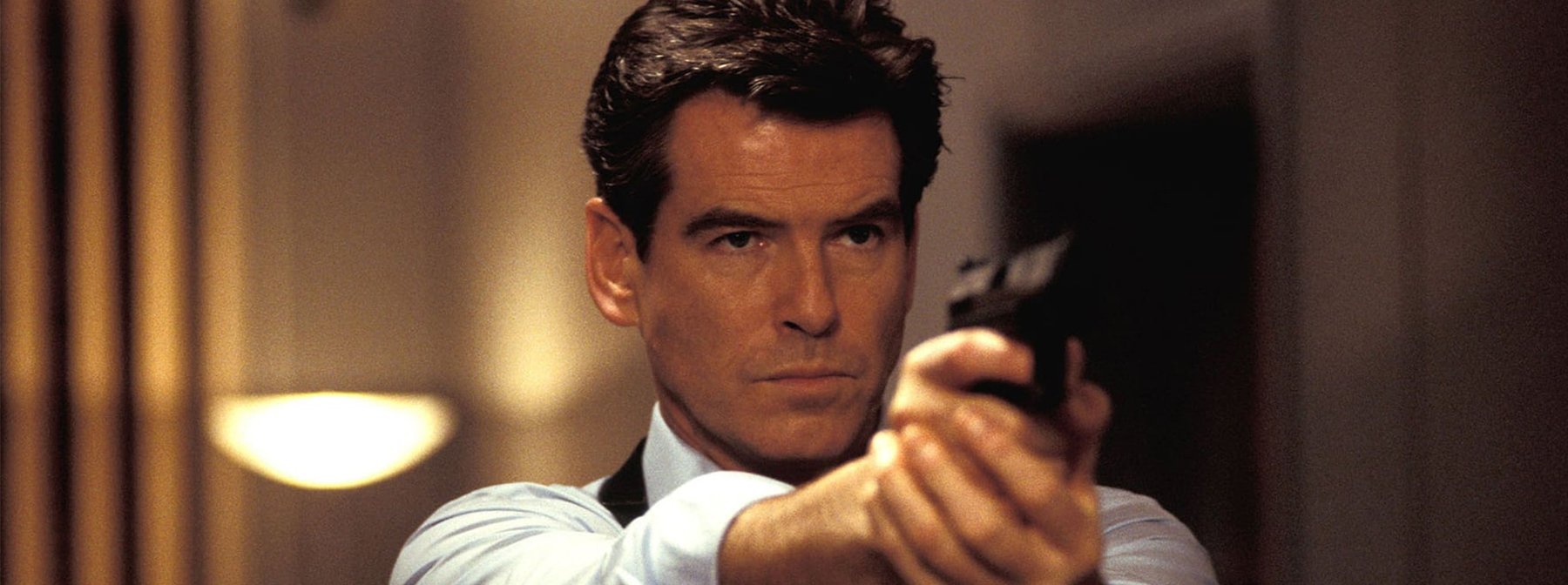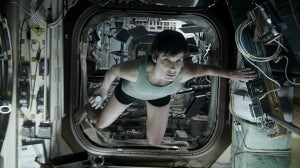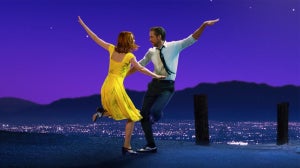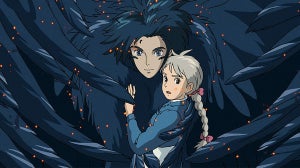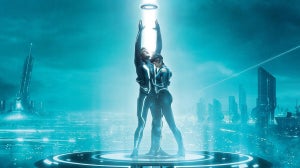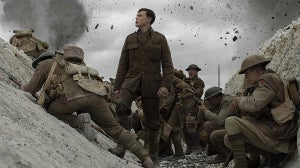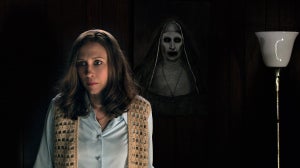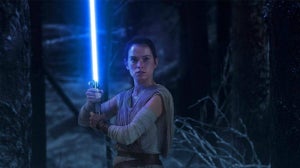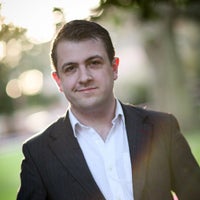
November sees the 25th anniversary of GoldenEye, the first of four films in the Pierce Brosnan era of the James Bond franchise.
It’s a film that isn’t mentioned too often when talking about the best of the series, and is probably most famous for its association with the legendary N64 game.
However, the 1995 film, and Brosnan’s performance in it, is a turning point in the way the world’s most celebrated spy would evolve over the next quarter of a century.
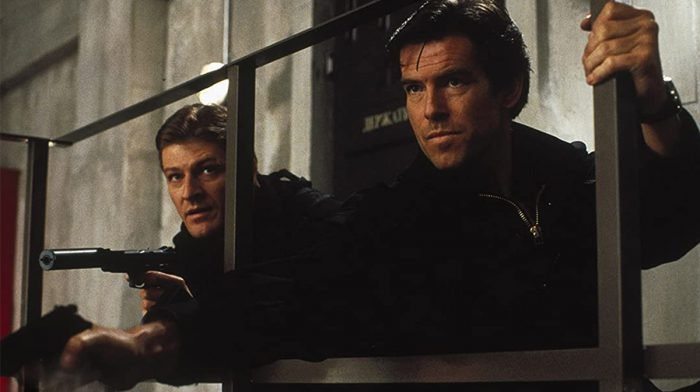
Set in the aftermath of the Cold War, Bond finds himself up against his old best friend Alec Trevelyan (Sean Bean), a former double‐O agent thought to be dead, but is now in possession of GoldenEye, a satellite weapon that threatens to cause a global technological blackout.
The film came six years and four months after the Timothy Dalton’s last adventure, License To Kill, the longest ever gap between Bond films caused largely by legal battles between rights holders.
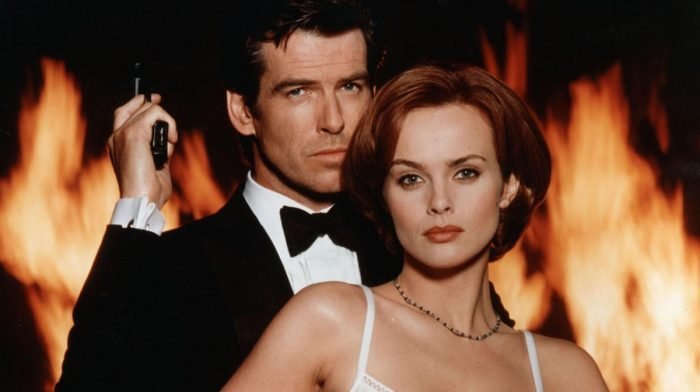
It was clear that EON's fifth James Bond needed reinvention to win back the public. After years of the light‐hearted approach Roger Moore brought to the character, Timothy Dalton’s cerebral take was a shock to the system, and resulted in two films that were among the lowest grossing in the series (when adjusted for inflation).
Despite this, there was a sense that a more complex Bond was needed for the final decade of the 20th century, so much so that Dalton was originally set to return for the film before resigning in 1994.
And what Brosnan brings to GoldenEye is a more user‐friendly complexity, a balance between Connery’s grit and Moore’s charm, that eases the icon into a new era.
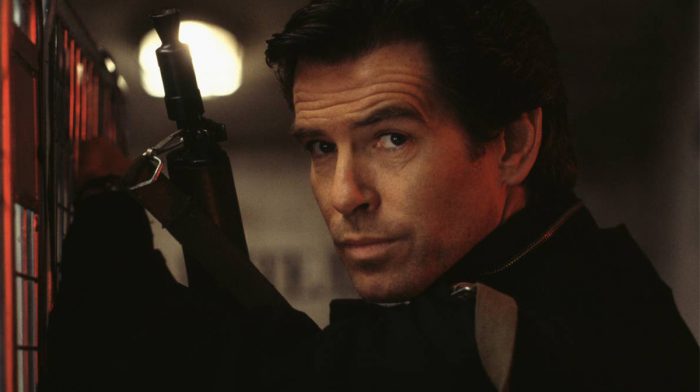
We still have the casinos, the cars, the double‐entendres (“one rises to the occasion”). He can smash through city streets in a tank, and defy physics to fall faster than a plane.
This is a Bond that delights in his job as much as his predecessors, but one that isn’t afraid to delve into his darker side too. Throughout the film, the shades of grey in 007’s character are laid bare – it’s clear that this is a man who willingly shoulders the cost of achieving his objectives.
At one point, Trevelyan mockingly asks Bond if “all those vodka martinis silence the screams of all the men you've killed... or have you found forgiveness in the arms of all those women, for the ones you failed to protect?”
He earlier described his foe as someone whose “loyalty was always to the mission, never to his friend”. It’s the viewpoint of a vengeful villain, granted, but where we once got breathless gasps of “oh James...”, this 007 gets some introspection.
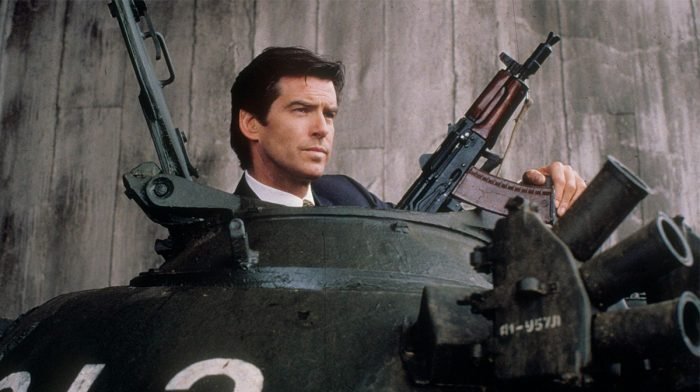
Bond’s character takes a hammering from almost everyone he encounters in GoldenEye, but what makes Brosnan’s performance so compelling is that he neither denies nor apologises for any of it.
He embraces the darkness as part of “the job we were chosen for”, seeing his actions as part of the greater good.
At one point, Natalya Simonova (Izabella Scorupco), Bond’s ally and eventual love interest, asks “how can you be so cold?” “It’s what keeps me alive” he replies, bluntly. “No, it’s what keeps you alone” she concludes.
For this new interpretation, both answers are true – he is a lone survivor. Someone who lives with the consequences, rather than riding off into the sunset.
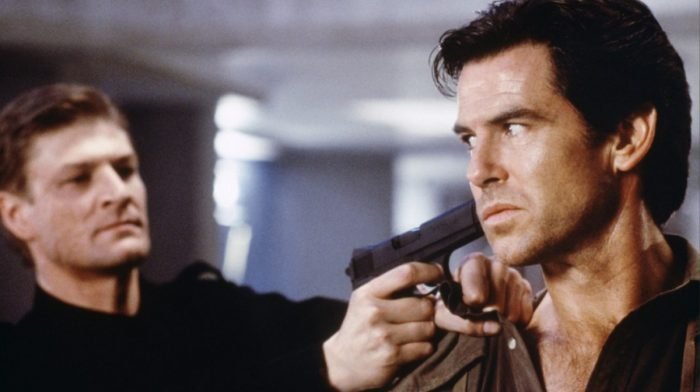
Another reason behind this reinvention was perhaps the greatest enemy ‐ time. In the period Bond was away, the world had changed: Bond’s constant backdrop, the Cold War, was over.
In the mid‐90s, as a hopeful world moved toward a new millennium, many wondered if we needed a character so entrenched in the past.
Rather than run from those questions, GoldenEye leaps headfirst towards them by examining the myth of Bond in a way that hadn’t been tried before. This is maybe most evident in a scene between Brosnan and the new M, played by Dame Judi Dench.
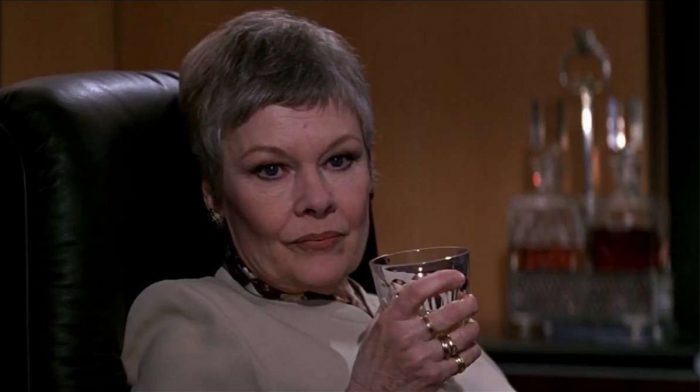
She’s almost synonymous with the character now, but back in the '90s it was considered revolutionary to cast a woman in the role, and this first face‐to-face meeting outlines Bond’s place in this new world.
When Brosnan tacitly confirms that he doesn’t approve of her methods, Dench immediately fires back: “good, because I think you're a sexist, misogynist dinosaur. A relic of the Cold War, whose boyish charms, though wasted on me, obviously appealed to that young woman I sent out to evaluate you”.
M is, in a way, laying down the gauntlet to the franchise: many of the things that were synonymous with 007 are no longer acceptable, and their mission is to prove that Bond is still needed in a more progressive time.
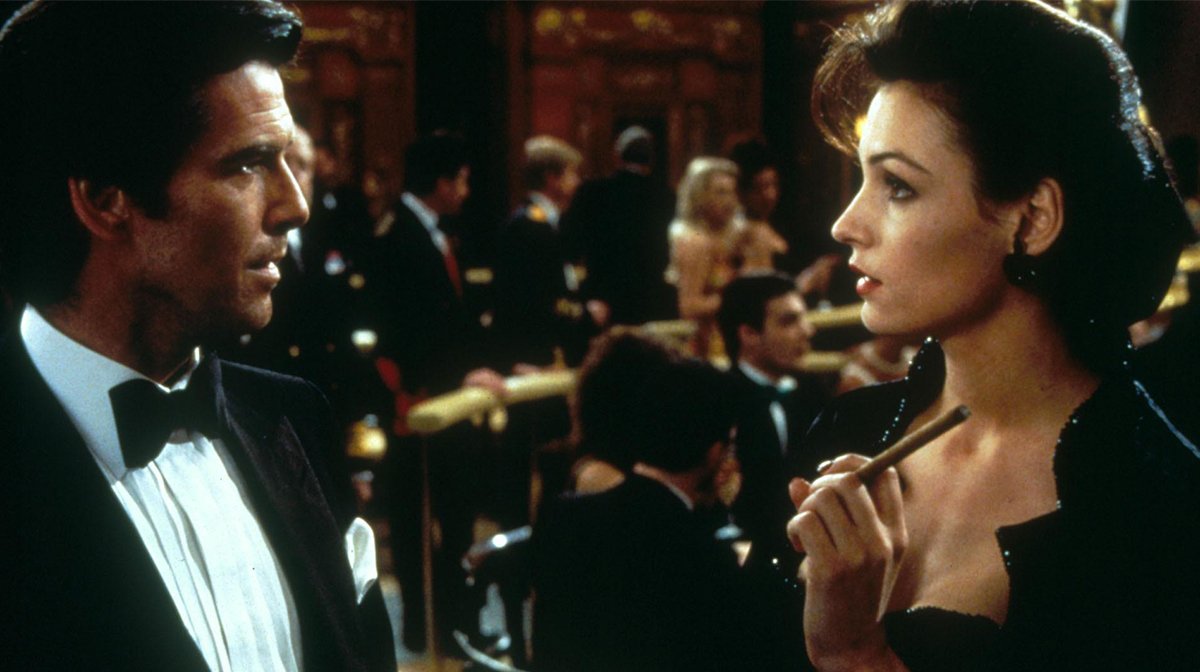
In the case of GoldenEye, this meant the Bond Girl leading the way.
Natalya Simonova is a computer programmer who handles the technical challenges while Bond handles the bullets. It’s a more collaborative relationship that will be echoed in other heroic female characters during Brosnan’s time, such as Tomorrow Never Dies’ Wai Lin (Michelle Yeoh) and Die Another Day’s Jinx (Halle Berry).
These allies are contemporaries to Bond, rather than damsels in distress.
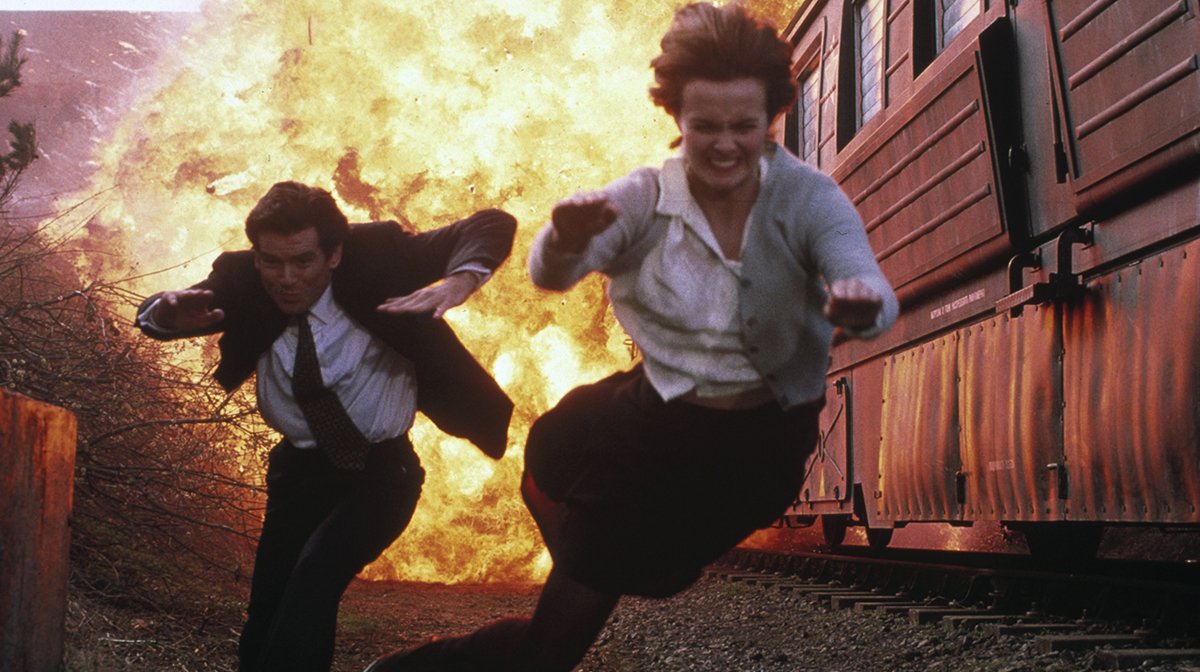
In doing this, the film would also lay the foundations of Bond as an analogue hero in a digital world. Whereas his enemies rely on data, he relies on instinct – it doesn’t matter how high tech a satellite station is if you blow it up with one of Q’s exploding pens.
It’s a theme that carried through to Daniel Craig’s Bond, particularly in Skyfall where Bond’s usefulness is questioned by more than one colleague.
The spirit of James Bond may lie in the past, but GoldenEye proved that the character can keep up with the present without losing what makes him popular.
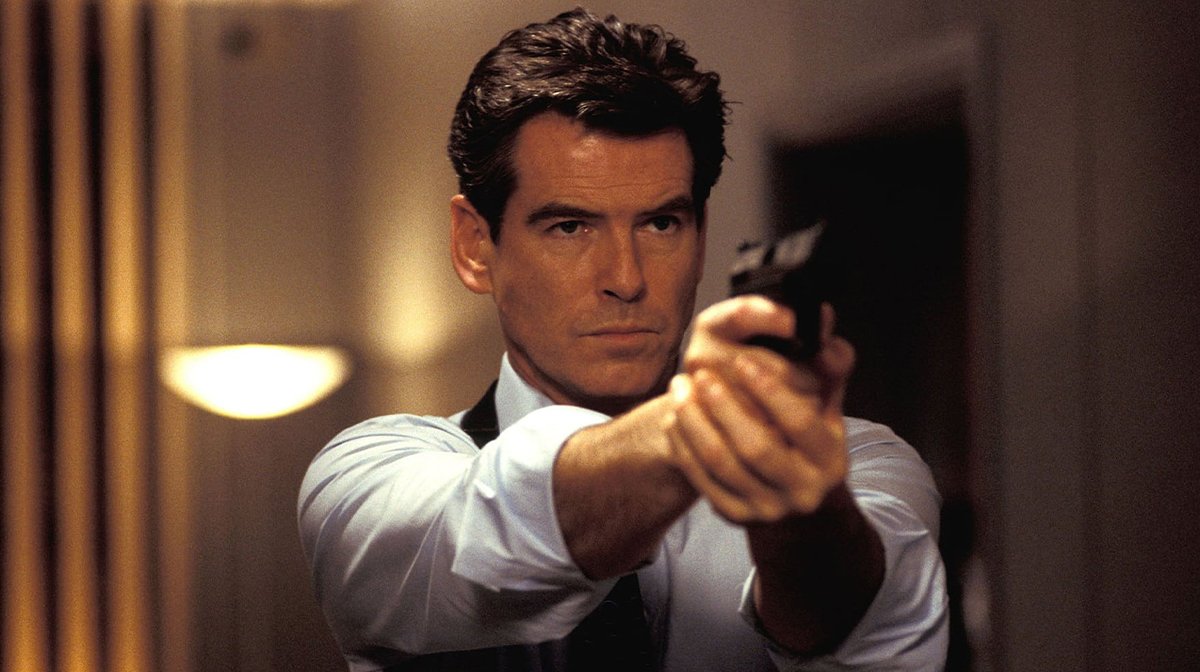
Brosnan would mellow over the course of his tenure as James Bond, leaning more toward the stunts and quips of the Moore years in his latter two films.
However, his performance in GoldenEye established a blueprint for how Ian Fleming’s hero would enter the 21st century, retaining the best of the old ways while always keeping up with the times.
The teaser poster for the film declared “There Is No Substitute”, and this turning point in the franchise ensured that this is still the case 25 years on.
Shop our full range of James Bond merchandise here.
For all things pop culture and the latest news, follow us on Instagram, Twitter, Facebook, YouTube, and TikTok.

